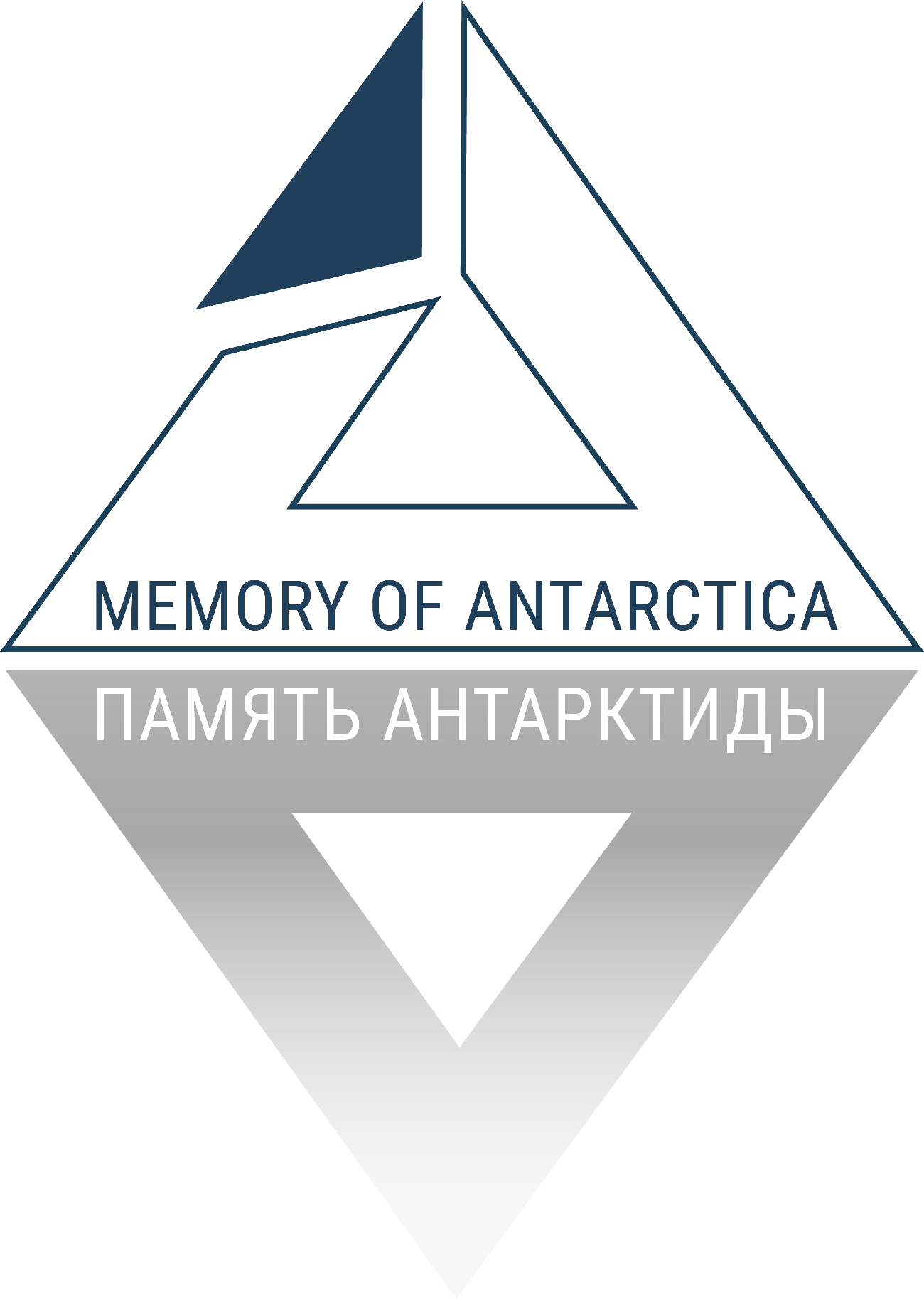Krichak Oska
03.08.1960
Krichak Oskar Grigorievich
The head of the aerometotry, died on 08/03/1960 when a fire broke out in a house under the snow at Mirny station, 5 SAE
***
1960. New buildings on piles had not been set up at Mirny by that time, so the station was buried under snow. Special passages with stairways were made as a way to reach the outer world.
In the early hours of August 3, a circuit breaker turned off at the diesel power plant. The shift mechanic assumed something had happened at one of the facilities and started calling all the buildings. Oscar Grigorievich Krichak answered the phone at the meteorology house and uttered just one word: ‘Burning!’ After that, they could not get in touch with the meteo-house again.
That night, a storm was raging at Mirny. The wind would reach 55 m per second. It is barely humanly possible to move in such weather. The whole station was raised upon alarm, but the explorers could do nothing while the storm lasted.
When they finally got to the meteo-house, they saw yellow flames blazing at the entrance and black smoke billowing from the aerological tower 30 m away from the building. (The tower was connected to the house via an undersnow tunnel.) It was too late.
The reason for the fire in the meteorology building was never discovered. A working theory is that there was a short circuit. There were 8 people from the meteorology group in the house; Oscar Krichak, the famous synoptic, was the leader. He was also a musician, composer and the life and soul of any party.
Two of the people then present in the meteo-house had spent 100 days in a tent on ice, in extreme conditions, and returned to Mirny just the day before.
There were two foreigners among the deceased – a German and a Czech. The latter, Oldřich Kostka, was the head of the Czechoslovakian aerological service. It was his first Antarctic expedition.
Suddenly awakened by the fire that was getting close, the explorers tried to find safety under beds and got gas-poisoning. The German Christian Popp was found on top of a briefcase full of documents. He was shielding 6-months worth of results of scientific observation from the flames. That unique information was procured by pioneers in the Antarctic regions no man had reached before.
His son Christian Popp Jr. said: ‘My Dad became a soldier at 16. He served in the Luftwaffe; they would shoot down aircrafts in the sky over Germany. In the beginning of 1945 my father got a head wound. Final battles were fought in Potsdam, and he found himself in the field hospital. When Soviet soldiers came and surrounded the infirmary, the wounded surrendered. Dad was one of the people who walked out with the white flag. This is how it looked, according to stories I’ve heard: the first two came out and were shot on sight. My father was next. But they did not shoot him.’
Just 15 years after the war, all those yesterday boys, who were quite young and had fought as enemies, would be brought together. They would winter at the same polar station bearing the symbolic name of Mirny (Peaceful).
***
In Autumn 1941 Joseph Stalin gave the order to lay the weather forecast for November 7 on his table. On that day, the chief was getting ready for the Red Square military parade of great political and symbolic significance.
However, the weather in Moscow was fine and favourable for an enemy air attack. Stalin did not want to risk it. Meteorologists had the final word. The young scientist Oscar Grigorievich Krichak received the assignment.
Almost every weather station near the capital was destroyed, and no data would reach Moscow. Krichak had a small pilot group at his command and they scouted out the weather.
His forecast was accurate. On the morning of November 7, it started sleeting, and the wet snow covered Moscow. The parade went as planned.
Right after university, Krichak was one of those who actively participated in the making of the country’s meteorological service. At the end of 1936, he started working at the Central Weather Institute in Moscow, now the Hydrometeorological Centre of Russia. In 1940, Oscar became head of the aerological observatory of outer Moscow. It provided aviation with weather forecasts. For that purpose, high altitude aerostat flights were carried out (136 in the first year); Krichak took part in some of them himself.
The Great Patriotic War began. Wartime weather forecasts are of tremendous value. Sometimes their accuracy can influence the outcome of a tactical operation. Oscar Krichak made it through the war, from beginning to end. He was at the head of the main Meteorological Station for Aviation and weather service at the front. Krichak worked at the Hydrometeorological Centre of the USSR and dedicated his time to science.
A new chapter in Oscar’s life began in 1956. Meteorology became one of the main topics of the International Geophysical Year. Krichak took part in the development of a complex programme of Antarctic research.
He was able to put his plans into effect during the second Soviet Antarctic expedition. Oscar Grigorievich was appointed head of an aerometerology group, and pursued that subject for the rest of his days.
Krichak was a fine organiser, his military experience coming into play. A weather bureau was in operation at the Mirny observatory. They provided forecasts daily and also worked at field bases and the new stations: Oazis (Oasis), Pionerskaya (Pioneer), Komsomolskaya (Komsomol) and Vostok (East).
Oscar Grigorievich was the soul of the expedition. Being musically gifted, he played many instruments, started the Sosulka (Icicle) ensemble and wrote music himself. His most famous songs were Antarctic Waltz and White Iceberg. All that creativity lifted people’s spirits and proved to be very important in wintering conditions.
Next time Krichak returned to Antarctica as part of the fifth expedition. His group was expected to create a system of stations for winter observation. The temporary bases Mir (Peace), Pobeda (Victory) and Druzhba (Friendship) were set up.
The work was finished on August 2, 1960. The staff went back from the stations to Mirny. And in the small hours of August 3, a fire broke out in the aerometeorology building. The group was caught off-guard and could not handle the situation. Snow covered the exits, and the people were not able to leave the house. It was impossible to help them in the storm, as the wind would reach 50 m per second.
The fire took the lives of Oscar Grigorievich Krichak and his 7 colleagues. They were buried near the Mirny station, on Buromsky island.
The head of the aerometotry, died on 08/03/1960 when a fire broke out in a house under the snow at Mirny station, 5 SAE
***
1960. New buildings on piles had not been set up at Mirny by that time, so the station was buried under snow. Special passages with stairways were made as a way to reach the outer world.
In the early hours of August 3, a circuit breaker turned off at the diesel power plant. The shift mechanic assumed something had happened at one of the facilities and started calling all the buildings. Oscar Grigorievich Krichak answered the phone at the meteorology house and uttered just one word: ‘Burning!’ After that, they could not get in touch with the meteo-house again.
That night, a storm was raging at Mirny. The wind would reach 55 m per second. It is barely humanly possible to move in such weather. The whole station was raised upon alarm, but the explorers could do nothing while the storm lasted.
When they finally got to the meteo-house, they saw yellow flames blazing at the entrance and black smoke billowing from the aerological tower 30 m away from the building. (The tower was connected to the house via an undersnow tunnel.) It was too late.
The reason for the fire in the meteorology building was never discovered. A working theory is that there was a short circuit. There were 8 people from the meteorology group in the house; Oscar Krichak, the famous synoptic, was the leader. He was also a musician, composer and the life and soul of any party.
Two of the people then present in the meteo-house had spent 100 days in a tent on ice, in extreme conditions, and returned to Mirny just the day before.
There were two foreigners among the deceased – a German and a Czech. The latter, Oldřich Kostka, was the head of the Czechoslovakian aerological service. It was his first Antarctic expedition.
Suddenly awakened by the fire that was getting close, the explorers tried to find safety under beds and got gas-poisoning. The German Christian Popp was found on top of a briefcase full of documents. He was shielding 6-months worth of results of scientific observation from the flames. That unique information was procured by pioneers in the Antarctic regions no man had reached before.
His son Christian Popp Jr. said: ‘My Dad became a soldier at 16. He served in the Luftwaffe; they would shoot down aircrafts in the sky over Germany. In the beginning of 1945 my father got a head wound. Final battles were fought in Potsdam, and he found himself in the field hospital. When Soviet soldiers came and surrounded the infirmary, the wounded surrendered. Dad was one of the people who walked out with the white flag. This is how it looked, according to stories I’ve heard: the first two came out and were shot on sight. My father was next. But they did not shoot him.’
Just 15 years after the war, all those yesterday boys, who were quite young and had fought as enemies, would be brought together. They would winter at the same polar station bearing the symbolic name of Mirny (Peaceful).
***
In Autumn 1941 Joseph Stalin gave the order to lay the weather forecast for November 7 on his table. On that day, the chief was getting ready for the Red Square military parade of great political and symbolic significance.
However, the weather in Moscow was fine and favourable for an enemy air attack. Stalin did not want to risk it. Meteorologists had the final word. The young scientist Oscar Grigorievich Krichak received the assignment.
Almost every weather station near the capital was destroyed, and no data would reach Moscow. Krichak had a small pilot group at his command and they scouted out the weather.
His forecast was accurate. On the morning of November 7, it started sleeting, and the wet snow covered Moscow. The parade went as planned.
Right after university, Krichak was one of those who actively participated in the making of the country’s meteorological service. At the end of 1936, he started working at the Central Weather Institute in Moscow, now the Hydrometeorological Centre of Russia. In 1940, Oscar became head of the aerological observatory of outer Moscow. It provided aviation with weather forecasts. For that purpose, high altitude aerostat flights were carried out (136 in the first year); Krichak took part in some of them himself.
The Great Patriotic War began. Wartime weather forecasts are of tremendous value. Sometimes their accuracy can influence the outcome of a tactical operation. Oscar Krichak made it through the war, from beginning to end. He was at the head of the main Meteorological Station for Aviation and weather service at the front. Krichak worked at the Hydrometeorological Centre of the USSR and dedicated his time to science.
A new chapter in Oscar’s life began in 1956. Meteorology became one of the main topics of the International Geophysical Year. Krichak took part in the development of a complex programme of Antarctic research.
He was able to put his plans into effect during the second Soviet Antarctic expedition. Oscar Grigorievich was appointed head of an aerometerology group, and pursued that subject for the rest of his days.
Krichak was a fine organiser, his military experience coming into play. A weather bureau was in operation at the Mirny observatory. They provided forecasts daily and also worked at field bases and the new stations: Oazis (Oasis), Pionerskaya (Pioneer), Komsomolskaya (Komsomol) and Vostok (East).
Oscar Grigorievich was the soul of the expedition. Being musically gifted, he played many instruments, started the Sosulka (Icicle) ensemble and wrote music himself. His most famous songs were Antarctic Waltz and White Iceberg. All that creativity lifted people’s spirits and proved to be very important in wintering conditions.
Next time Krichak returned to Antarctica as part of the fifth expedition. His group was expected to create a system of stations for winter observation. The temporary bases Mir (Peace), Pobeda (Victory) and Druzhba (Friendship) were set up.
The work was finished on August 2, 1960. The staff went back from the stations to Mirny. And in the small hours of August 3, a fire broke out in the aerometeorology building. The group was caught off-guard and could not handle the situation. Snow covered the exits, and the people were not able to leave the house. It was impossible to help them in the storm, as the wind would reach 50 m per second.
The fire took the lives of Oscar Grigorievich Krichak and his 7 colleagues. They were buried near the Mirny station, on Buromsky island.
Songs by Oskar Krichak
Ensemble ICICLE
Ensemble ICICLE
Hello world!
Hello world!
Hello world!
Hello world!
Hello world!
Hello world!
Hello world!
Hello world!
Hello world!
Hello world!
Hello world!
Hello world!
Hello world!
Hello world!
Hello world!
Hello world!
Hello world!
Hello world!
Hello world!
Hello world!
Book
ANTARCTIC DIARIES
ANTARCTIC DIARIES

Family's archive photos











